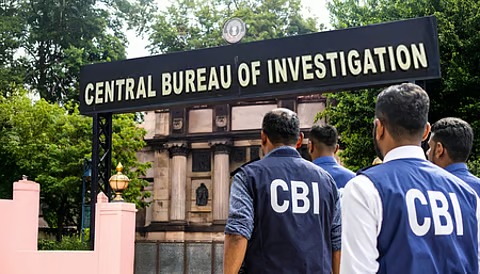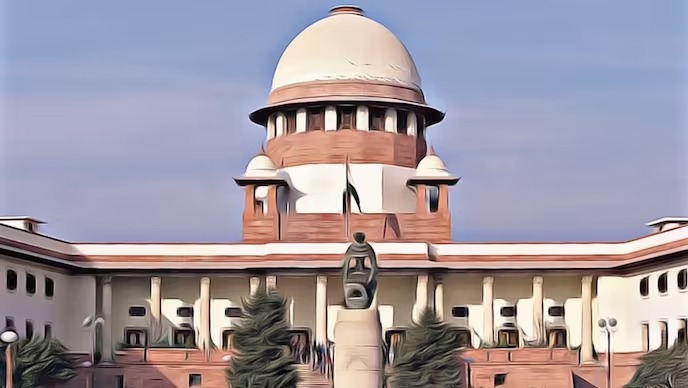@JUDGMENTTAG-ORDER
Y.K. Sabharwal, C.J.@mdashRule returned forthwith with the consent of the parties.
2. For the present purpose, the facts which we would notice here in under briefly-He in a very narrow compass.
3. On the complaint of Shantaram Naik, proceedings were initiated against the petitioner under the Goa Public Men''s Corruption (Investigations and Inquiries) Act, 1988, for short, "the Act". The Final Report submitted by the Commission under the Act, is Exhibit ''E'' dated 24th March, 1999. It has been rendered by the Chairman and a Member of the Commission. The said Final Report inter alia states that as the petitioner is no more Sarpanch no order u/s 18 of the Act is to be made. The recommendations made in terms of the Final Report dated 24th March, 1998, are:
"(a) Criminal proceedings be instituted against the respondent and his accomplished (accomplices) in view of the misappropriation of funds of the Panchayat for offences punishable under the Prevention of Corruption Act;
(b) Civil Proceedings be initiated against the respondent, for the recovery of the misappropriated amount of Rs. 15,476/- with interest from the date of the issuance of the cheque to Tilve till actual payment. This action should be taken forthwith, having in mind the law of limitation, for delay in taking it may result in the claim becoming time barred."
It however appears that the third Member of the Commission, in terms of his Report dated 16th March, 1999, directed as under:-
"The respondent ought to refund the amount of Rs. 15,476/- (Rupees fifteen thousand four hundred seventy six only) in full to the Panchayat without prejudice to his right to file suit against whomever he so desires so as to claim from Bodko and Guru whatever money he alleges to have given to them.
The money that is received ought to be paid 10 the Temple.
In case the respondent defaults in payment, he cannot continue even as a Panch in terms of section 10(d) of the Panchayat Raj Act and the competent authority ought to initiated recovery proceeding for the amount of Rs. 15,476/- (Rupees fifteen thousand four hundred and seventy six only) against the respondent.
In addition the competent authority will also initiate criminal proceedings against the respondent and his associates i.e. Tilve and Bodko and Guru because the respondent in joint conspiracy with these people created all this situation which not only gave rise to the present proceedings by illegally retaining the public funds and depriving the Temple Committee of the money."
4. The Government of Goa, Directorate of Panchayats, has sent to the petitioner impugned Notice dated 2nd June, 1999, infer alia, directing the petitioner in terms of section 18 of the Act to refund the entire, amount of Rs. 15,476/- with interest, also stating that on failure to deposit, further action will be taken to recover the amount from him. This Notice further stated in the recital that the Commission has also held, that in case he defaults in payment, the petitioner cannot continue even as a Panch in terms of section 10(d) of the Goa Panchayat Raj Act, 1993. It is evident from the petitioner''s letter dated 17th June, 1999, sent to respondent No. 1, that the petitioner has deposited with the Director of Panchayat an amount of Rs. 18,596/- by sending cheque favouring Village Panchayat, Usgao, Goa. By the said communication, the Director of Panchayats, respondent No. 1 herein was informed that the payment was being made without prejudice and under protest, infer alia, stating that the petitioner intends to challenge the Notice dated 2nd June, 1999. The learned Additional Government Advocate for the respondents No. 1 and 3 does not dispute that the amount as aforesaid has been deposited by the petitioner.
5. In view of the deposit having been made by the petitioner, the relief in this writ petition is confined to alternate prayer (c), to the effect that the respondent No. 1 may be directed by appropriate writ or direction to invest Rs. 15,596/- and retention of the said amount by way of security and appropriation of it subject to the orders of the competent Civil Court. Learned Counsel for the petitioner, on instructions from the petitioner, who is present in Court, gives up relief (a) in paragraph 24 of the petition as also the first prayer Clause (c) and confines this petition to the alternate prayer (c) as noticed above. Besides this prayer and subject to the decision by the Civil Court regarding the civil liability, the petitioner also seeks quashing of the Notice dated 2nd June, 1999, as claimed in prayer Clause (b). In view of the prayer Clause (a) having been given, up, learned Counsel for the petitioner seeks leave to delete from the array of respondents, respondent No. 4. We order accordingly. Respondent No. 2 is only a formal party. Respondents No. 1 and 3 are represented by learned Additional Government Advocate. In the light of these facts, now we would examine the relevant provisions of the Act.
6. Sections 17 and 18 inter alia, deal with the orders that may be made by Commission, under the Act. u/s 17, the Commission on being satisfied that the allegations have been substantiated, is to submit a report in writing and communicate its findings and recommendations to the Government. The procedure on receipt of the report has been enumerated in this provision. The constitution of the Commission has been dealt with u/s 4 of the Act. Sub-section (4) of section 4 stipulates that every matter to be decided by the Commission shall be decided in accordance with the opinion of the majority of the members. Sub-section (1) of section 4 of the Act deals with the constitution of the Commission consisting of three members. Sub-section (2) of section 4 of the Act stipulates the appointment and mode of appointment of the Chairman of the Commission. Section 18 of the Act provides for vacation of office by a public man, if directed by the Commission.
7. From the facts noticed hereinbefore, it is evident that the majority opinion comprising of the Chairman and another Member only made recommendation for institution of criminal proceedings and initiation of civil proceedings and did not make any order u/s 18 of the Act of vacation of office. It is not the case of the Government that any such order was made in the Report dated 24th March, 1999, or otherwise, except in the Report submitted by the third Member, the facts in respect thereof, have already been noticed.
8. It is really strange that in the impugned Notice dated 2nd June, 1999, there is not even a whisper of the majority opinion. It only refers to the minority report/order dated 16th March, 1999 of the third member which held that the petitioner shall refund the amount in full to the Panchayat without prejudice to his right to file suit against whomsoever he so likes. The impugned notice further states that the Commission has held that in case of default in payment, the petitioner cannot continue even as Panch in terms of section 10(d) of the Goa Panchayat Raj Act, 1993. Reference to both these directions is made by noticing that ''the Commission'' has so held. We find no such finding by the Commission assuming that the contention urged on behalf of respondents No. 1 and 3 that inadvertently in the impugned notice, no reference was made to the majority report dated 24th March, 1999, is correct. Assuming there was any such inadvertence, we are unable to find any finding of the Commission on any of the aforesaid two aspects. Further, the impugned notice is issued to the petitioner, as stated therein, in terms of section 18 of the Act. As already noticed, every matter is required to be decided by the Commission in accordance with the opinion of the majority of the Members in case of any conflict. The majority of the Members did not issue any direction u/s 18 of the Act. It is evident that the Director of Panchayat assumed the role of the Commission, which power did not vest in him. The directions u/s 18 of the Act could be only issued by the Commission. The same not having been issued, such a direction issued by the Director of Panchayats is without jurisdiction. In fact, the impugned notice demonstrates complete non-application of mind. Under the circumstances, the impugned notice date 2nd June, 1999 is set aside. As a natural consequence, we may have considered issuing directions for the refund of the amount, but for the reasonable approach adopted by learned Counsel for the petitioner, that the amount be kept in a Fixed Deposit in a Nationalized Bank to be disbursed as a result of adjudication in civil suit that may be filed against him in terms of the recommendations of the majority opinion that civil proceedings be initiated against the petitioner for recovery of the amount of Rs. 15,476/-, with interest.
9. For the aforesaid reasons, we make the rule absolute to the extent of quashing the notice date 2nd June, 1999. We further direct that the amount deposited by the petitioner shall be kept in a Fixed Deposit in a Nationalized Bank initially for a period of one year to be renewed from time-to-time. In case the petitioner succeeds in the said suit to be filed against him, the amount may be refunded to him alongwith interest which may accrue on it. Similarly, if the suit is decreed, the amount alongwith accrued interest would be paid to the decree holder. Further, we direct that the suit be filed within a period of three months from today. In case the suit is not filed within three months, the amount would immediately thereafter be paid to the petitioner. The writ petition is thus allowed in the above terms with costs quantified at Rs. 2,000/- (Rupees two thousand only).
10. Writ petition allowed.

